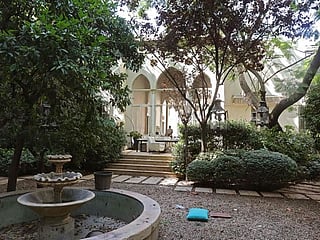Kuwait National Assembly amends publication and press law
Law will limit censorship in print and publishing media

Kuwait City: The Kuwait National Assembly approved several amendments to the press and publications law on Wednesday, local state media reported.
Out of the 49 MPs present, 40 lawmakers voted in favour of the law, while nine MPs rejected it.
Also Read: Photos: Lockdown lifted in Kuwait's Mahboula
Marzouq Al Ghanim, speaker of the National Assembly, said after the session: “This is an important step in terms of increasing freedom with a balanced commitment to moral, legal and national controls. I think this is a gift to writers, intellectuals, creators and everybody involved in culture.”
“What happened yesterday is a small step that is supposed to be followed by more steps, although it is not as ambitious, especially after what the bill was subjected to in terms of changes,” Bothyana Al Essa, a Kuwaiti author, said.
Various amendments were proposed to the law, one of which will lift the Ministry of Information’s control over publications, mainly books, imported into the country. According to the article, the importer, alone, bears the legal responsibility for the ideas and opinions expressed in their publication.
“The freedom of expression is already restricted in Kuwait on multiple levels, this law doesn't fix it. The amendment shifts the power of censorship away from the executive branch and to the judicial branch. We still need to work on the prohibition section in the law, which needs a stronger political lobby and mature political and societal awareness,” Abdullah Khonaini, a Kuwaiti activist and researcher, told Gulf News.
Many people welcomed this amendment as it was seen as a way to limit the government’s censorship when it comes to publications.
Al Essa lobbied and worked with the National Assembly to amend the publications and press law. She said in a statement: “The Ministry of Information is no longer the judge when it comes to books and I believe this is a most important achievement. We will continue to work towards achieving greater freedoms.”
Al Khonaini, like Al Essa, helped work on and lobbied for the law to be amended.
“The most challenging part, working to this law, was to find consensus among politicians, the intra-division among them made getting a consensus very challenging, especially when it comes to laws that involve freedom of expression,” Al Khonaini added.
Another article that was amended, article 21, prohibiting the publishing of anything that stirs up sectarianism or tribal strife or ideas that are based on racism and demeaning between groups of people.
“These additional amendment reflects the current political discourse unfortunately. As much as I personally disagree with these additional amendments, it mirrors the political scene and also the National Unity law in which it restricts expression with its vagueness. Words like social fabric, moral indecency and provoke sectarianism are very problematic and vague,” Al Khonaini said.
Before the passing of this law, a 12-member censors committee of the Ministry of Information would meet twice a month and decide which books are banned and which ones are not.
History of book censorship
In the past, the Ministry of Information has barred the entry of multiple books from the Little Mermaid to Mama Hessa’s Mice, a book by a Kuwaiti author, Saud Alsanousi.
Al Essa’s book ‘Maps of Wandering, was also banned in Kuwait. After experiencing censorship at first hand, Al Essa lobbied and worked with the National Assembly to change the publication and press law.
Between 2016 and 2018, around 3,766 books were banned, which is about an average of 1,255 books per year, Al Qabas reported.
The Ministry of Information justifies the banning of books, stating that 46 per cent of bans are due reasons related to religion, beliefs and prophets. The committee takes its decision based on a 2006 law that bans any book that could be detrimental in any way to Islam, justice and national security.
No to censorship
Back in 2018, the government admitted that it banned around 4,390 books between 2014 and 2018. The government’s announcement led to a public demonstration and online protests where various hashtags like, #Banned_In_Kuwait and #Dont_Decide_For_Me, were trending on Twitter.
“People have always been vocal about banning books since 2006, however it used to be considered 'impossible' to amend, but here we are in 2020 and the law has been amended,” Al Khonaini explained.
Then, later that year, at the 43rd annual Kuwait Book Fair, Mohammed Sharaf, a visual artist, created an installation that was a cemetery of books to protest the government’s ban on numerous literature pieces.
“The cemetery included almost 200 gravestones like wooden blocks. These blocks looked like books, and gravestones. On their face, names of banned books were written, 2013-2015 and a stamp that says ‘banned in Kuwait’,” Sharaf told Gulf News.
Sharaf added: “An important factor is that I wasn’t there next to the cemetery when people started seeing it, or seeing photos of it. It was just there, speaking for itself, loudly and silently. People made their own interpretation regardless of who made it, and why.”
According to Sharaf, the installation was taken down within three hours by the authorities, yet it was documented by many and photos were published all over social media.
“My favourite reaction and result was that it reached the general public, who aren’t particularly interested in writing and publishing. The outer circle, parents and grandparents, people who are partially indifferent or mildly interested,” Sharaf explained.
In November 2019, Sharaf exhibited the same installation at the Contemporary Art Platform (CAP) for the public to view.







